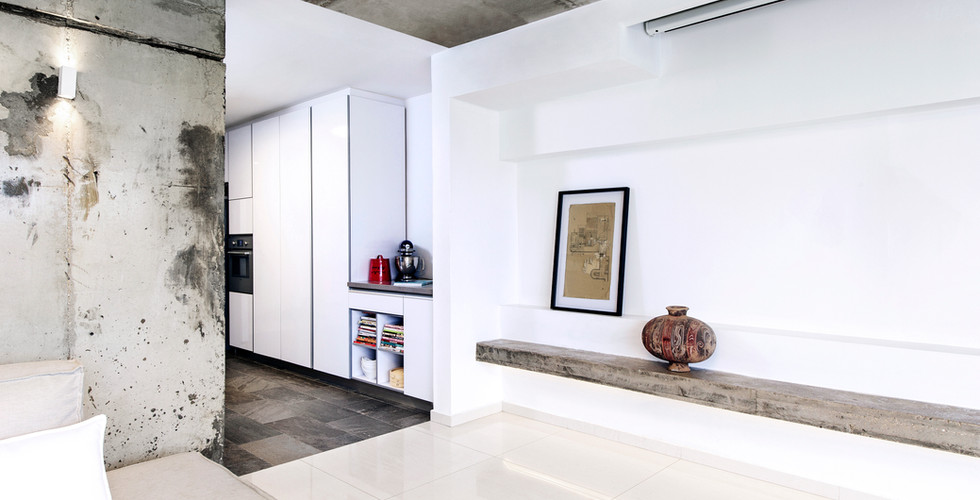The Importance of Staging: Living Your Best Life
- Deborah Emery
- Dec 6, 2020
- 4 min read
A friend recently asked me to take a look at his house. Having just put it on the market, he wanted me to see if any of their existing furniture could be used in their new house, which we are about to start renovating. As I was surveying, I asked if he would mind my moving some things around to create a more pleasing layout for the house showings, and he was happy for me to go ahead. In just a few minutes, I rearranged the furniture in their living room, dining room, and one of the bedrooms. He was amazed at how it opened up the spaces, making them feel more inviting.
Their house sold a week later. Now, I am not taking credit for how quickly it sold, as they are in a very desirable market right now and they had already done the hard work of cleaning out much of the accumulated junk of the last 15 + years, as well as fixed all the broken odds and ends. There are always great houses that sit in a hot market, so it is important to do everything you can to help a sale (unless you really don't want to sell, but that is a different story). I believe staging can not only help a sale, but can also raise the perceived value of a property, whereas a lack of staging may actually hurt a potential sale. The goal of getting your house market-ready should be to create an inviting, clean, well-maintained space where prospective buyers can envision themselves living their best lives.

Here are some of my tips for achieving that:
1. Clean out your junk - you will have to do this when you move anyway, so why not start early. Go through every closet, drawer, tabletop, bookcase, etc and give away or throw out what you no longer need, pack up whatever you do want to keep, and put it aside somewhere where it is out of the way, or put it in storage. Just keep the bare necessities. Moving is hard, but it is a great opportunity to clean house, so to speak, and throw things away. People looking for a house to buy do not want to see someone else’s junk.

2. Identify places where you can stash whatever you did not pack away so you can quickly be ready for when brokers want to come by at the last minute, and you know that will happen. This includes your work at home files and papers, bills, children’s toys, laundry that needs folding or ironing, etc. If you prepare ahead of time, you won't be stressed when you get that call.

3. Make a list of all the repairs you have been meaning to do for so long (we all have them!!) and get them done, either yourself, if you are a DIYer, or hire someone. Buyers see even minor repairs as a sign the home is not well maintained, and that more significant issues may also be present, but hidden. You want them to walk away from a showing feeling like they will have nothing to worry about. Again, they want to envision their best life there, not a life full of fixing things. Don't let anything distract from the overall great impression you want to make.

4. Paint can do wonders for refreshing a home and particularly if you have some bright colors that may not appeal to everyone. Best to stick to a neutral palette so the colors are not a distraction. That said, after several years of gray everywhere, color is back, but I still believe neutral or softly colored walls appeal to most buyers, even if they decide to paint them afterward. Strong colors are so specific and personal, and you risk turning off that perfect buyer who has a hard time visualizing.

5. Remove unnecessary window treatments and open up your windows/views. This is one of my pet peeves when I look through listings and it is often all I can focus on, which is exactly what you don't want. I recently helped a client stage her apartment which sat right on the East River in Manhattan with spectacular views of the boats passing by – she had very heavy draperies, albeit beautiful and elegant, in every window, which almost completely blocked the views. She had spent a lot of money on those draperies and was very reluctant to remove them, but once we did and she saw how much more light came in and how the sunlight sparkled on the water, she was thrilled.

6. Consider putting some fresh flowers out, buying some good quality incense sticks to create subtle appealing scents in your home. Think aromatherapy.

7. Finally, follow your broker’s advice, and consider making more significant repairs or changes if they think you will get your money back, and it will be a deal-breaker if you do not do so.
The good news is that once the hard work is done, homeowners are often so pleased with the results they wish they had done this much earlier, so they could enjoy it themselves. While that may make it harder to let go, it will make it easier for someone else to see themselves leading a happy, carefree life there. Finally, in your new home, keep things organized by periodically purging, so you never have to go through a major cleanout again, and if your home needs fixing, don't wait so long. You will feel so much better once you take care of those things you have been meaning to do for so long.
Please share any other great staging ideas you have with us!

Deborah Emery





Comments